Supporting Your Immune System
Adding brightly colored fruits and veggies to your plate is associated with boosting immunity. But have you ever wondered why? What exactly is it about adding color to your plate that helps you fight off sickness? We asked Registered Dietitian Noelle Martin to dig into this topic a little more and share a few yummy recipes to help put this advice into practice.
Building a Strong Immune System
It’s no secret that building a strong immune system is something that we need to continuously work on.
Hand washing is one of the best lines of defence against sickness, but there are a few additional steps that are important to take to strengthen your immune system. These include:
- Eating a healthy balanced diet with lots of vegetables and fruits
- Consuming foods and supplements that contain probiotics and omega 3 fatty acids
- Staying well hydrated
- Fitting activity into your daily routine
- Prioritizing a good sleep routine
Nutrition & Immunity
While having a well-balanced diet is a great goal, there are a few specific nutrients to consider when looking for ways to strengthen your immune system. Let’s take a look at each one and see how it is helpful and where you can find it. And since we eat food, not nutrients, let’s look at a few recipes, too!
Beta-Carotene
Eating foods that contain beta-carotene, such as Tomatoes, Peppers, pumpkin, sweet potatoes, and leafy greens, supports the immune systemin a few important ways.
- Beta-carotene is an antioxidant, which means that it helps prevent and reduce damage to cells.
- Beta-carotene can be converted to vitamin A in the body and used to keep our skin, lung, and digestive tract cells healthy. These cells are our first line of defense against illness. It also helps to keep the cells that line our lungs and digestive tract functioning well. Food sources are a better option compared to supplements because the synthetic versions of beta-carotene do not have the same protective effect.

Are you looking to add more beta-carotene to your diet? Try these recipes:
- Roasted Pepper and Butternut Squash Soup
- Grilled Sweet Potato with Red Bell Pepper
- Fresh Bell Pepper and Kale Salad
Vitamin C
Vitamin C is likely the first nutrient to pop into your mind when it comes to immunity. But do you know why it is so important? Much like beta-carotene, it is also an antioxidant. But it also has other important functions:
- It helps immune cells to develop and function properly.
- It supports the body’s response in creating antibodies towards a virus or bacterial infection.
- It increases our absorption of iron, which is also important for a strong immune system. Iron deficiency is a common, and often preventable, reason for compromised immunity.
Ideally, we meet our vitamin C needs (60-100 mg per day) by eating whole foods instead of supplements. It is absorbed and used best this way.
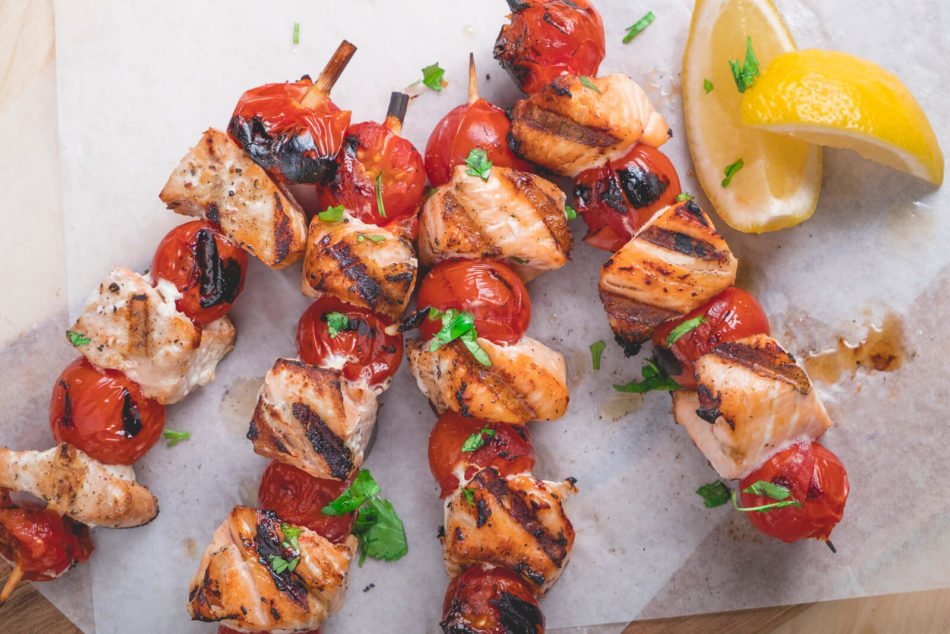
Are you looking for a few new ideas to boost your vitamin C and iron intake? Try these yummy recipes:
Vitamin B6 & Zinc
The next two nutrients, vitamin B6 and zinc, are needed for our white blood cells (also known as our immune cells) to develop and function properly. Said another way, vitamin B6 and zinc deficiency may lead to a weaker immune system. Deficiency of these nutrients is rare if you have a well-balanced diet because they exist in many “everyday foods”.
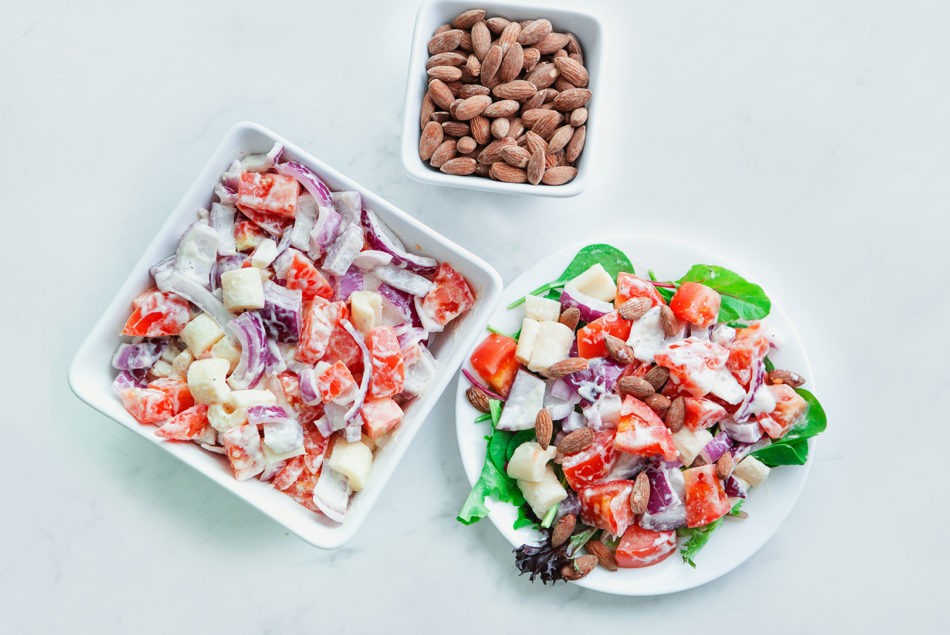
Here are a few recipes to help boost your vitamin B6 and zinc intake:
Vitamin E & Selenium
Vitamin E and selenium help to slow or stop damage to cells from free radicals. They are also both anti-inflammatory agents. This is important as increased levels of inflammation in the body can lead to a reduced immune response. With adequate intake of vitamin E and selenium from a variety of sources including several fruits, veggies, nuts, and seeds, we have stronger defense against short-term and long-term illnesses.
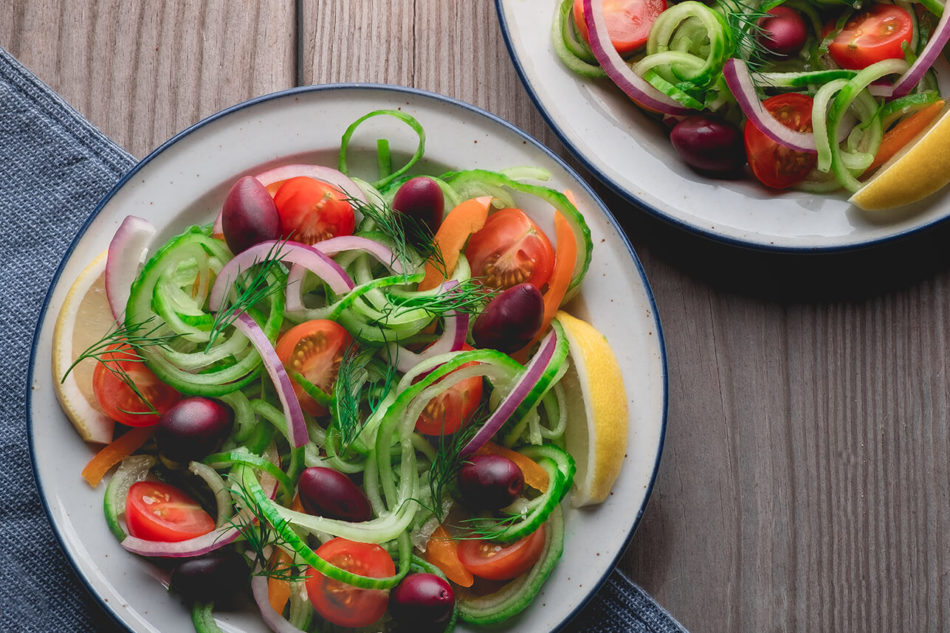
Here are a few recipes especially rich in these important nutrients:
Gut Health: Probiotics & Prebiotics
There are good and bad bacteria that live in our GI tract, and the more “good” ones that we have, the greater our level of immunity. We can increase the good bacteria by including foods in our diet that contain probiotics and prebiotics. A few of the top sources of probiotics are yogurt, kefir, sauerkraut, tempeh, and kombucha. Top sources of prebiotics are bananas, garlic, onions, and apples.
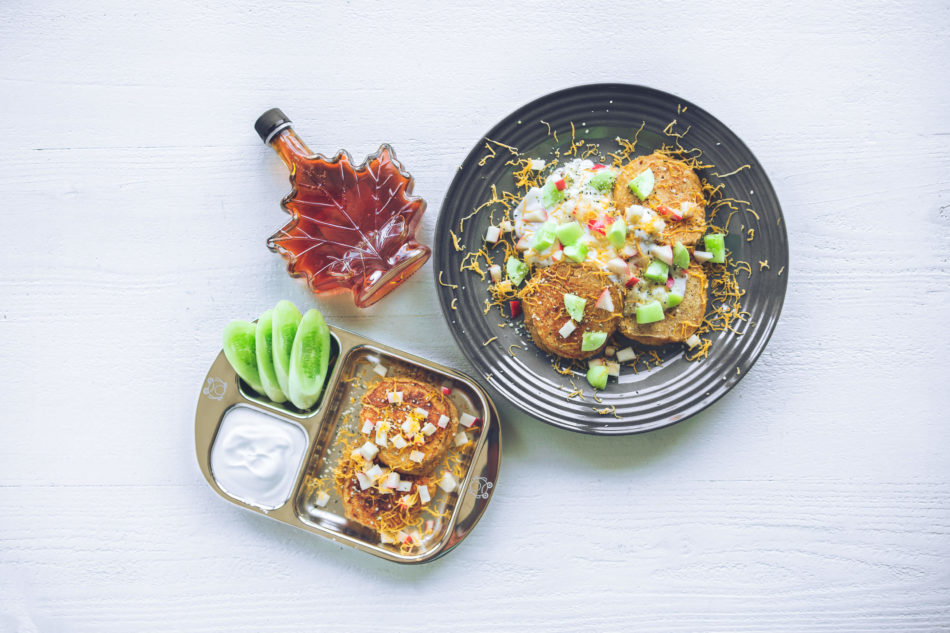
Try these recipes to boost your gut health:
Hydration & Immunity
Hydration supports your immunity by ensuring adequate blood volume and flushing toxins from your body. It can be especially difficult to stay hydrated during times of intense heat or physical activity, while living or working in a forced air environment, or when we are sick. Here are a few tips for staying well hydrated:
- Drink a glass of water as soon as you wake up.
- Choose water to quench your thirst instead of juice or soda. If you find that you don’t remember to drink water regularly, set a timer to go off every hour that you are awake and drink 1/2-1 cup of water every time the timer goes off.
- Fill a large container at the start of the day with water to have a visual on how much you plan to consume throughout the day. Add slices of fresh Cucumber, pineapple, lemon, orange, grapefruit, or lime for a refreshing flavor boost!
- Drink an extra 8 oz. of water for every cup of coffee, serving of alcohol, or high sodium meal or snack that you have.
- Drink an extra 2-3 cups of water for every hour of activity you engage in, and possibly more if you are in a hot climate.
Self-Care & Immunity
Sometimes self-care can feel selfish, but the reality is that if we do not make an effort to maintain everyday healthy habits, we will not be well enough to accomplish our daily tasks and goals. In addition to boosting our immunity through the healthy food and beverage choices already mentioned, it is also important to fit in daily physical activity and make a regular sleep routine a priority. For tips on how to fit in more physical activity and choose foods that support the best results, see our recent post on pre-workout and post-workout nutrition. If you are working on improving your sleep habits, try these strategies:
- Consume caffeine before noon to ensure that this stimulant doesn’t keep you awake later than ideal.
- Create an evening routine that allows for your body and brain to calm down starting 1-2 hours before you want to be asleep. This may mean changing your screen time and eating routine.
- Ensure that you have a balanced diet, rich in vegetables, fruits, and whole grains. Try to limit simple sugars and saturated fat. Several B vitamins, including vitamin B6, have been shown to help balance hormones involved in your sleep cycle. Magnesium is a mineral that is also strongly associated with improved sleep.
If you are looking for a bedtime snack rich in nutrients that supports improved sleep, try sliced Cucumber with cashews or almonds, whole grain toast with mashed avocado, or yogurt topped with pumpkin seeds.
Inflammation & Immunity
There are so many ways that you can help to boost your immune system by adding new foods and habits to your day. There are also a few things that are worth reducing or avoiding when working to ward off sickness. For example, refined sugar, alcohol, and saturated and trans-fat have all been linked to increased levels of inflammation in the body, which in turn leads to compromised immunity. The good news is that if we use moderation and limit these as often as possible, while prioritizing the nutrients we’ve mentioned, we can achieve a healthy balance. As already mentioned, vitamin E and selenium work to reduce inflammation in our body. Omega 3 fatty acids do as well. These are found in fatty fish, omega 3 eggs, hemp hearts, ground flax seed, avocados, pumpkin seeds, walnuts, and olive oil.
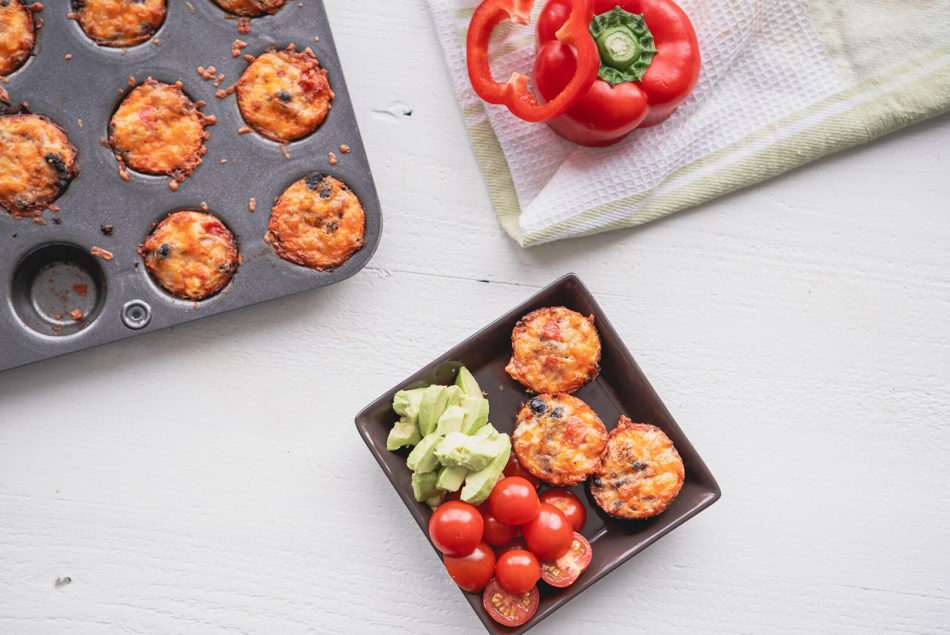
If you’re looking for recipes packed with anti-inflammatory nutrients, try these:
Simple Changes to Support Your Immune System
There are so many health-related choices that we can make to support a healthy immune system. But if making these choices feels overwhelming, try starting with just one new habit. It can be as simple as:
- Adding a few slices of Tomato to your lunch plate
- Exchanging chips for Cucumber slices as one of your snacks
- Sautéing a few extra sliced Peppers and onions next time you have tacos
Every single choice you make that supports your health, is one step closer to your goal!
Looking for a recap? Check out this handy chart for a condensed version of the nutrition and immunity section of this blog!
| Nutrient | Found In | Immune Boosting Functions |
| Beta Carotene | Tomatoes, Bell Peppers, pumpkin, squash, carrots, kale, broccoli | Antioxidant Supports skin, lung, and GI tract cells |
| Vitamin B6 | Meat, fish, poultry, Tomatoes, Cucumbers, leafy greens, potatoes, bananas | Needed for immune cells to develop and function well |
| Vitamin C | Tomatoes, Bell Peppers, Cucumbers, citrus fruits, kiwi, strawberries | Antioxidant Needed for immune cells to develop and function well Helps your body develop antibodies towards illness |
| Vitamin E | Tomatoes, Bell Peppers, whole grains, nuts, seeds, oils, wheat germ, quinoa | Helps to slow or stop damage to cells from free radicals Anti-inflammatory |
| Selenium | Fresh or frozen fruits and veggies grown in selenium-rich soil | Helps to slow or stop damage to cells from free radicals Anti-inflammatory |
| Zinc | Meat, fish, seafood, poultry, nuts, seeds, yogurt, enriched cereals | Needed for immune cells to develop and function well |
| Omega 3 Fatty Acids | Fatty fish, omega 3 eggs, hemp hearts, ground flax seed, avocados, pumpkin seeds, walnuts, olive oil | Anti-inflammatory |
| Probiotics | Yogurt, kefir, sauerkraut, tempeh, kombucha | Supports healthy gut flora |
| Prebiotics | Bananas, garlic, onions, apples | Supports healthy gut flora |
Have more questions about boosting your immune system? Feel free to reach out to Noelle Martin of @motherhoodandmeals through direct messaging on Instagram, or through email (noelle@motherhoodandmeals.com).



